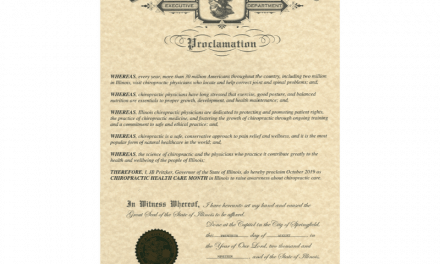
Money Matters – Overcoming the Fear of Talking about Dollars and Cents

We all know the importance of sitting down with our patients to discuss the cost of care, yet it is one of the most under-utilized processes followed in offices across the country. Authors of the Instamed report state, “With the focus shifted to the consumer, both payers and providers will be challenged to overhaul their payment processes or face lost revenue and poor customer retention.” Knowing that a Financial Report of Findings (FROF) with our patients is essential to boosting collections and retaining our patients, why are so many offices still not implementing this practice?
For many, it’s considered taboo. Miss Manners (Emily Post) herself was quoted as saying, “A very well-bred man intensely dislikes the mention of money, and never speaks of it if he can avoid it.”
This quote is from the 1920s; however, it is still indicative of how most of us were raised on the subject. As a result, we find it difficult to talk about money with our patients. In most cases, these conversations need to happen with new patients, but we hesitate as we strive to make them feel comfortable in our offices. Taking the right steps to implement a proper FROF in your office will help to ensure long-term success.
Right Person, Right Seat
Years ago, I had an outstanding CA that was involved in direct patient care. I decided to reward her for her exceptional work ethic by promoting her to our office manager position. In two short months, she was one of my least effective team members. Her morale was down, her attitude mirrored that of Eeyore, and her work was shoddy, to say the least. I couldn’t understand how my best employee was now my worst employee, so I sat down with her to have “the talk.” I dreaded this conversation in my heart and my head; however, it was during this conversation that I learned how much she missed talking to patients, disliked paperwork, and no longer felt like she was making a difference. In my infinite wisdom, I had rewarded her by giving her a job that made us all miserable. I immediately moved her back to her old position and moved another staff member to the office manager position. Everyone was much happier, and I didn’t end up losing one of the best employees I have ever had the pleasure of working with.
Likewise, when determining who will have the financial conversation with your patients, base it on the person with the right personality, not the right job title. This person should be comfortable talking to your patients about money. They should be kind-hearted, patient, and cheerful. Keep in mind that, although you may not know the financial situation of everyone who works in your office, those who have a good personal relationship with money are going to be more comfortable having these conversations with patients.
Location, Location, Location
Choose a private location to have this conversation in your office. Although we are not discussing the patients’ finances directly, we are discussing their financial responsibility for the care they need. Restate the doctor’s recommendation for care. Let patients know what insurance will cover. Let them know your actual fees for services that insurance will not cover and be prepared to offer affordable payment options. Asking patients to part with $1,200 of their hard-earned money may scare them away, but letting them know that their care is going to take three months and will cost $400 per month can open the door to affordability.
Keep it Simple
Give your patients an easy way to pay. Today, most of us, myself included, pay everything online or have it drafted from our accounts. We have moved to a passive way of paying our bills. We don’t give much thought to the price of our gym memberships, utility bills, or car payments, because they just get deducted from our bank accounts. We never feel the sting of parting with our money like our patients do when they pay at the end of each visit. Setting up an auto-debit system in your practice allows you to utilize a payment schedule that works with your patients’ budgets and builds a steady stream of revenue for your practice. This allows our patients to get treated and leave feeling positively about their experiences, not feeling the dread of having to part with money on their way out the door.
Be committed to opening up the lines of communication when it comes to talking about money with your patients. You might be pleasantly surprised by the results, but you’ll never know if you never try. Tony Robbins said it best, “If you do what you’ve always done, you’ll get what you’ve always gotten.” We often tell ourselves, “no” or, “I can’t,” when it comes to trying new and different things. Change is hard. Incorporating a new procedure can be tough, but the gratification of seeing collections and patient retention improve far outweighs the discomfort of trying something new.

















